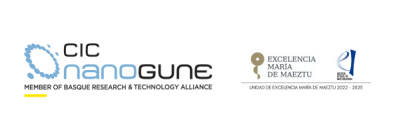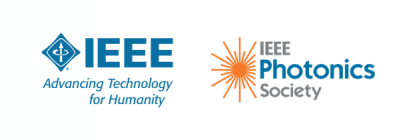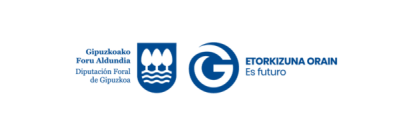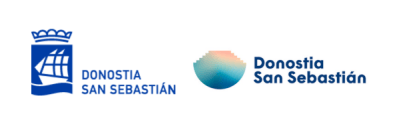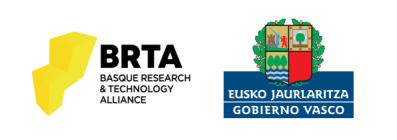OMN 2024 - Program
OMN 2024 - Program
FINAL PROGRAM | MON 29/07 | TUE 30/07 | WED 31/07 | THURS 1/08 | POSTERS
Final program
You can download the final program for OMN 2024 here (Updated on 2024.07.26, 17:03).
Monday, 29 July
| 8:00 | Registration |
| 8:30 | Opening ceremony |
|
9:00 |
JESÚS M. DE LA FUENTE - University of Zaragoza, Zaragoza, Spain |
Session 1: Design and optimization |
|
|
9:45 |
ALEXANDRA BOLTASSEVA - Purdue University, West Lafayette, USA |
|
10:15 |
SIMON ANS - LAM - Laboratoire d'Astrophysique de Marseille, Marseille, France |
|
10:30 |
ANUP SHRIVASTAVA - University of Kassel, Kassel, Germany |
|
10:45 |
WEI ZHANG - Shenzhen Technology University, Shenzhen, China |
| 11:00 | Coffee |
Session 2: Resonators on MOEMS |
|
|
11:30 |
KENTARO IWAMI - Tokyo University of Agriculture and Technology, Tokyo, Japan |
|
12:00 |
JASMIN SPETTEL - Silicon Austria Labs GmbH, Villach, Austria |
|
12:15 |
MARC-ANTOINE BIANKI - École Polytechnique de Montréal, Montréal, Canada |
|
12:30 |
TIAGO NEVES DE MELLO - Toyohashi University of Technology, Toyohashi, Japan |
|
12:45 |
RÉGIS GUERTIN - École Polytechnique de Montréal, Montréal, Canada |
| 13:00 | Lunch |
| 14:30 | Poster 1 |
Session 3: Nanophotonics I |
|
|
15:30 |
VLADIMIR M. SHALAEV - Purdue University, West Lafayette, USA |
|
16:00 |
SALVADOR POVEDA-HOSPITAL - École Polytechnique de Montréal, Montréal, Canada |
|
16:15 |
LE DAI - Beijing Institute of Technology, Beijing, China |
|
16:30 |
DAN MAROM - The Hebrew University, Jerusalem, Israel |
| 16:45 | Coffee |
|
17:15 |
CÉDRIC LEMIEUX-LEDUC - École Polytechnique de Montréal, Montréal, Canada |
|
17:30 |
JI-EUN YEO - Gwangju Institute of Science and Technology (GIST), Gwangju, Republic of Korea |
|
17:45 |
IVAN ALDAYA - São Paulo State University, São Paulo, Brazil |
| 18:00 | End Monday |
Tuesday, 30 July
|
9:00 |
SARA ABALDE-CELA - International Iberian Nanotechnology Laboratory (INL), Braga, Portugal |
Session 4: Nano-bio-photonics |
|
|
9:45 |
ARDA DENIZ YALCINKAYA - Boğaziçi University, Istanbul, Republic of Türkiye |
|
10:15 |
HARUN HANO - CIC nanoGUNE, San Sebastián, Spain |
|
10:30 |
HUGO E. HERNÁNDEZ-FIGUEROA - University of Campinas, Campinas, Brazil |
|
10:45 |
ENEKO LOPEZ - CIC nanoGUNE, San Sebastián, Spain |
| 11:00 | Coffee |
Session 5: MOEMS scanners I |
|
|
11:30 |
NEELAM KAUSHIK - Tohoku University, Sendai, Japan |
|
12:00 |
SYLWESTER BARGIEL - FEMTO-ST Institute, University of Franche-Comté, Besançon, France |
|
12:15 |
TENG PAN - Beijing Institute of Technology, Beijing, China |
|
12:30 |
HENGZHANG YANG - Beijing Institute of Technology, Beijing, China |
|
12:45 |
TOMOYA TSUTSUI - Keio University, Yokohama, Japan |
| 13:00 | Lunch |
| 14:30 | Poster 2 |
Session 6: MOEMS scanners II |
|
|
15:30 |
HAKAN ÜREY - Koç University, Istanbul, Republic of Türkiye |
|
16:00 |
ÇAĞLAR ATAMAN - University of Freiburg, Freiburg, Germany |
|
16:15 |
HUA WANG - Beijing Institute of Technology, Beijing, China |
|
16:30 |
JUNHUI WU - National University of Singapore, Singapore |
|
16:45 |
PARVIZ ZOLFAGHARI - Koç University, Istanbul, Republic of Türkiye |
| 17:00 |
End Tuesday |
Wednesday, 31 July
|
9:00 |
YOGENDRA KUMAR MISHRA - University of Southern Denmark, Sønderborg, Denmark |
Session 7: MOEMS shutters |
|
|
9:45 |
DAVID DICKENSHEETS - Montana State University, Bozeman, USA |
|
10:15 |
XINYU DING - Beijing Institute of Technology, Beijing, China |
|
10:30 |
ROLAND DONATIELLO - University of Kassel, Kassel, Germany |
|
10:45 |
BASMA ELSAKA - University of Kassel, Kassel, Germany |
| 11:00 | Coffee |
Session 8: Micro-optics |
|
|
11:30 |
MATTHIAS WAPLER - Otto von Guericke University Magdeburg, Magdeburg, Germany |
|
12:00 |
RALF BAUER - University of Strathclyde, Glasgow, UK |
|
12:15 |
YOUNG-GIL CHA - Korea Advanced Institute of Science and Technology (KAIST), Daejeon, Republic of Korea |
|
12:30 |
JAE-MYEONG KWON - Korea Advanced Institute of Science and Technology (KAIST), Daejeon, Republic of Korea |
|
12:45 |
OLAV SOLGAARD - Stanford University, Stanford, USA |
| 13:00 | Lunch |
| 14:30 | Poster 3 |
Session 9: Nanophotonics II |
|
|
15:30 |
JOST ADAM - University of Kassel, Germany |
|
16:00 |
DI ZHOU - Interuniversity Microelectronics Centre (imec), Leuven, Belgium |
|
16:15 |
IGAL BRENER - Sandia National Laboratories, Albuquerque, USA |
|
16:30 |
ZEFENG XU - National University of Singapore, Singapore |
| 16:45 | Coffee |
|
17:15 |
WEI CHENG - Southeast University, Nanjing, China |
|
17:30 |
JAEYOUN (JAY) KIM - Iowa State University, Ames, USA |
| 17:45 | End Wednesday |
Thursday, 1 August
|
9:00 |
STEFAN SINZINGER - Ilmenau University of Technology, Ilmenau, Germany |
Session 10: Imaging and Display |
|
|
9:45 |
DMITRY TABAKAEV - Silicon Austria Labs, Villach, Austria |
|
10:15 |
ZHIHAN XU - Hong Kong Polytechnic University, Hong Kong |
|
10:30 |
MARYAM ABEDI - CIC nanoGUNE, San Sebastián, Spain |
|
10:45 |
HYO EUN JEONG - Gwangju Institute of Science and Technology (GIST), Gwangju, Republic of Korea |
|
11:00 |
Coffee |
Session 11: 3D-printed MOEMS |
|
|
11:30 |
SIVAN TRAJTENBERG-MILLS - Massachusetts Institute of Technology (MIT), Cambridge, USA |
|
12:00 |
YUKI MATSUOKA - Keio University, Yokohama, Japan |
|
12:15 |
FLORIAN LUX - University of Freiburg, Freiburg, Germany |
|
12:30 |
KUTER ERDIL - Istanbul Bilgi University & Istanbul Technical University, Istanbul, Republic of Türkiye |
|
12:45 |
AYBÜKE ÇALIKOĞLU - University of Freiburg, Freiburg, Germany |
| 13:00 | Closing |
| 13:30 | Lunch |
| 15:00 |
End Thursday |
Posters
MONDAY, 29 JULY - Poster Session I, 14:30 - 15:30
P3: SOMAYYEH ASGARI, TAPIO FABRITIUS
Graphene-based Multi-band Terahertz Anisotropic Metamaterial Absorber Composed of Square-Shaped Resonator Array Featuring Three Apertures
P13: QIAN SONG, WEN CHEN, QING HUO LIU
Ghost imaging through dynamic scattering media based on expectation estimation correction
P27: KAI-HUNG LO, BO-XIAN KE, MING-CHANG M. LEE
Demonstration of a non-invasive optoelectronic probe for monitoring the phase information of a tunable 2-by-2 Mach-Zehnder interferometer in Si photonic circuits
P29: NGA P PHAM, JOHN M. O’CALLAGHAN, VITTAL PRAKASAM, PIETER NEUTENS, JORIS CEUPPENS, JAKOB VISKER, DI ZHOU, PHILIPPE HELIN
Transfer of a high temperature LPCVD-SiN photonic layer on wafers with thermal budget limitations
P30: DONGYU WANG, GUOHUA HU, YIPING CUI
Generation of Linearly Frequency-Modulated Pulses with Large Time-Bandwidth Products Using a Cascaded Grating-Assisted Spectral Shaper
P31: YAOHUI SUN, GUOHUA HU, YIPING CUI
Programmable Micro-ring Element with Asymmetric-MZI-Assisted for Dual-tunability
P40: JAEYOUN (JAY) KIM, RABIUL ISLAM SIKDER, MYUNG-GI JI
Highly Nonlinear Behavior of UV-curable Photopolymer during Low-Pressure Nanoimprinting
P47: JIN WANG, PICE CHEN, DONALD A. WALKO, JINXING JIAN, JIAN ZHOU, DANIEL LOPEZ
MEMS as Ultrafast X-ray Optics for Manipulating X-ray Pulses with Picosecond Resolution
P48: JOO HWAN KO, DONG HYUN SEO, SE YEON KIM, YOUNG MIN SONG
Electrically Programable Tamm Plasmon for Broadband Optical Neuromorphic Computing
P54: KIKO TANAKA, YOSHIHIRO TAGUCHI, MASAAKI HASHIMOTO
Fabrication of a Soft Photothermal Microactuator Using Two-Photon Polymerization and Vacuum Filling
P56: TIANZHOU CHEN, YOSHIHIRO TAGUCHI, MASAAKI HASHIMOTO
Bimorph Thermal Microactuator Fabricated by Additive and Subtractive Femtosecond Laser Processing
P65: FLORIAN LUX, AYBÜKE ÇALIKOĞLU, CAROLIN KLUSMANN, MATTHIAS HILLENBRAND, ÇAĞLAR ATAMAN
Dual-axis fiber-optic distance sensor for smart vitrectomes
P97: MORTEZA TEYMOORI, ARDA DENIZ YALÇINKAYA
Stopband Fano Resonance Terahertz Metamaterial via Conductive Coupling
P101: EZGI SENTURK, CEYDA KOKSAL, AHMET CAN ERTEN, ONUR FERHANOĞLU
A PDMS Micropillar Waveguide-based Microfluidic Viscosity Sensor
P104: XIAOHUI YANG, JIAHAO CHEN, MUSTAQIM SIDDI QUE ISKHANDAR, MUHAMMAD HASNAIN QASIM, GUILIN XU, HARTMUT HILLMER
Investigation on Bistable Closing Behaviors of Metallic MOEMS Micromirrors with Various Initial Opening Angles
TUESDAY, 30 JULY - Poster Session II, 14:30 - 15:30
P50: OLLI OVASKAINEN, TIANLONG GUO, MATTHIEU ROUSSEY
Negative tone resist for grey-scale electron beam lithography
P55: RIZWAN RAFIQUE, ANTONINO LA MAGNA, ANTONIO MIO, SALVATORE PATANÈ, ROSARIA A. PUGLISI.
Transversal plasmon resonance observed in tapered silicon nanowires
P63: RONEY DAS MERCES CERQUEIRA, ANDERSON DOURADO SISNANDO, VITALY FELIX RODRIGUEZ ESQUERRE
Machine Learning Design of Multimode Interference Devices
P66: MIRIELE CARVALHO PAIM, VITALY FELIX RODRIGUEZ ESQUERRE
Angular dependent propagation in tilted multilayered structures
P69: PAULINA CASTRO RODRÍGUEZ, PETER STEENEKEN, WOUTER WESTERVELD, RICHARD NORTE
Modelling and optimization of a photonic MEMS microphone
P70: SAJJAD HABASHI YOUVALARI, ONUR FERHANOĞLU, ARDA DENIZ YALÇINKAYA
Optically Powered CMOS-MEMS Integration for Optical Transmission of MRI Signals
P84: PHILIPP KÄSTNER, HABIB UR REHMAN, ROLAND DONATIELLO, BASMA ELSAKA, MD KAMRUL HASAN, HARTMUT HILLMER
Ring-shaped MEMS Shutter Arrays for Interference Microscopy: Designs, Fabrication, Characterization
P85: MD KAMRUL HASAN, MUSTAQIM S. Q. ISKHANDAR, PHILIPP KÄSTNER, SHILBY BABY, ROLAND DONATIELLO, HARTMUT HILLMER
2D Actuatable Micromirror Arrays for Smart Windows: Elimination of Stress Induced Cracks in Metallic MEMS Structures
P87: YUCHUN ZHU, AMIRALI ARABMOHEGHI, CLAUDIO ALEJANDRO JARAMILLO CONCHA, DARIN MERCHANT, NIELS QUACK AND CHRISTOPHE GALLAND
Fiber-Coupled Absorption-based Quantum Sensing with Nitrogen Vacancy Ensembles in a Suspended Diamond Photonic Cavity
P90: GILLIARD N. MALHEIROS-SILVEIRA
Silicon Nitride Microring Resonator with Metamaterial Side-Cladding for Sensing
P91: LAURENT MOLLARD, DAIVID FOWLER, SYLVAIN GUERBER, CHRISTEL DIEPPEDALE, GWENAEL LE RHUN, ANTOINE HAMELIN
Enhanced 2D Beam Scanning: Optical-Phase-Array on Piezo-Cantilever
P93: JIAHAO CHEN, XIAOHUI YANG, MD KAMRUL HASAN, MSQ ISKHANDAR, ROLAND DONATIELLO, HARTMUT HILLMER
Micromirror Arrays for Light Steering Smart Window Applications: Achieving Larger Spans of Opening Angles
P94: WENCHAO ZHANG, WENLONG JIAO, YUE TANG, HUIKAI XIE
A Double-Sided Electrothermal Micromirror Array With Drive Resistance Compensation
P95: TAKUMA ENDO, KOSUKE MORINAKA, YUTO MASUDA, TAKAYUKI KIBA, MIDORI KAWAMURA
Investigation of Mode Coupling Effect on Emission Spectrum of Organic Emitter in Microcavity with Plasmonic Multilayered Films
P96: IVAN ALDAYA, FRIDA FLORES-RIVERA, GRETHELL PÉREZ-SÁNCHEZ, YOLOTZIN MEDINA-VELÁZQUEZ, RODOLFO LÓPEZ-ROMERO, LEANDRA ABREU
Erbium-doped zinc-sodium phosphate glasses as high-gain material for integrated photonics
WEDNESDAY, 31 JULY - Poster Session III, 14:30 - 15:30
P100: MARCO KUENNE, THOMAS KUSSEROW, BERND WITZIGMANN, HARTMUT HILLMER
Modifying the complex refractive index of thin-films for nano-optical applications
P105: MD KAMRUL HASAN, MUSTAQIM S. Q. ISKHANDAR, SOHAN NANDAKUMAR JUVALE, SHILBY BABY, JIAHAO CHEN, HARTMUT HILLMER
Overcoming Pull-in Limitations of Optical MEMS Based Micromirror Arrays Using Structured Bottom Electrodes
P106: SERGIO QUINTERO, MARIA RELVAS, FERNANDO NODAL, SARA ABALDE-CELA, LORENA DIEGUEZ
Portable Raman platform for SERs droplets microfludics
P107: HADI MIRZAJANI, PARVIZ ZOLFAGHARI AND HAKAN ÜREY
Implantable Integrated Optical Device for in-vivo Phototherapy
P108: PARVIZ ZOLFAGHARI, FAIK OZAN OZHAN, HAKAN ÜREY
Pupil Center Tracking with a Quadrant Photodetector Using Bright Pupil Techniques
P109: ALESSIO MIRANDA, SANDER RENIERS, JASPER PIJL, JOS VAN DER TOL, KEVIN WILLIAMS, XAVEER LEIJTENS
Ultracompact Inverse Designed 1x2 MMI Power Splitter
P111: GILLIARD N. MALHEIROS-SILVEIRA
Silicon Nitride Microring Resonator with Slot Waveguide and Metamaterial Side-Cladding for Sensing Applications
P113: FLAVIO SILVA SANTOS, VITALY FELIX RODRIGUEZ ESQUERRE
Effects of the Refractive Index Data Set on Silver-Graphene Metamaterial Absorber
P114: ALEJANDRO GRINE, DARWIN SERKLAND, BETHANY LITTLE, RYAN SHAFFER, COURTNEY SOVINEC, MICHAEL WOOD, RONALD SALESKY
Development of Optical MEMS Gyroscopes with Integrated Interferometer and VCSEL Readout
P116: ANUP SHRIVASTAVA, SHIVANI SAINI, SANJAI SINGH, JOST ADAM
Atomistic Modeling of Sb/h-hBN heterostructure for potential optoelectronic applications
P117: NEELESH GUPTA, ANUP SHRIVASTAVA, JOST ADAM
Electronic, Stability and Optical properties of Strained Germanene monolayers: A DFT analysis
P118: YOUNG MIN SONG, MIN SEOK KIM, JINHONG PARK, DAE-HYEONG KIM
Foveated, multi-spectral imaging systems inspired by avian eyes
P119: LAURE SÈNE, RÉGIS GUERTIN, YVES-ALAIN PETER
Optimization of Fabry-Perot Interferometer Performance Through Low Mirror Roughness
P120: RAJEEV RANJAN, GIOVANNI COSTA, MARIA ANTONIETTA FERRARA, MARIO SANSONE, LUIGI SIRLETO
Noise investigation in femtosecond stimulated Raman scattering based on three femtosecond laser sources microscopy
More info
Agenda
| Mon | Tue | Wed | Thu | Fri | Sat | Sun |
|---|---|---|---|---|---|---|
|
23
|
24
|
25
|
26
|
27
|
28
|
1
|
|
|
|
|
|
|
|
|
|
2
|
3
|
5
|
7
|
8
|
||
|
|
|
|
|
|
||
|
10
|
11
|
12
|
13
|
14
|
15
|
|
|
|
|
|
|
|
|
|
|
17
|
18
|
19
|
20
|
21
|
22
|
|
|
|
|
|
|
|
|
|
|
23
|
24
|
25
|
26
|
27
|
28
|
29
|
|
|
|
|
|
|
|
|
|
30
|
31
|
1
|
2
|
3
|
4
|
5
|
|
|
|
|
|
|
|
|

